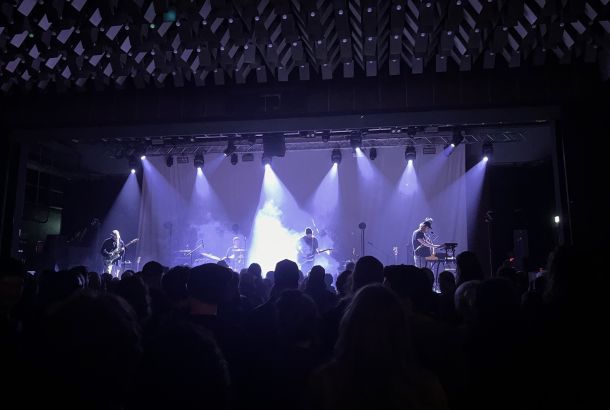Misogyny Still Defines the Music Industry in 2021

Content warning: This article was included in our ‘Spiking Awareness’ print issue. It might contain some content that readers may be uncomfortable with.
Written by Emily Johnston.
Women have undoubtedly been at the forefront of popular music this year. With more music from women and non-binary artists, as well as queer and minority acts than ever, the music industry is certainly embracing more diversity.
There have been new major releases from Lorde, Taylor Swift, Snail Mail, Clairo, Billie Eilish, and Doja Cat to name a few. These artists have been plastered across social and print media, and have dominated the charts. Even in male-dominated genres like RnB and hip-hop, artists such as Jorja Smith, SZA, and Little Simz have propelled the notion of female power within these fields. But misogyny remains rife.
Despite lyrics focusing on female empowerment, male production continues to prevail. And whilst you can never go wrong with a feminist anthem, it makes you ruminate on the society of which they were written about.
The rise of Riot Grrrl in the 90s was a pivotal part of third wave feminism and saw minority genders at the front of shows. This allowed a safer, intersectional space for people to express themselves the way white cis-men were doing the whole time. Songs often addressed issues such as rape, domestic abuse, sexuality, racism, misogyny, patriarchy, classism, anarchism and female empowerment. Women are literally shouting about their mistreatment and the question still stands: who is listening to them?
In a climate of intense misogyny and crimes against women, the music industry is not doing enough to tackle this. Robin Thicke’s ‘Blurred Lines’ is arguably one of the most controversial tunes of the 2010s. From the lyrics which many interpret as wildly non-consensual and advocating rape culture, to the music video which many see as objectifying women’s bodies, ‘Blurred Lines’ caters to a sexist society.
Earlier this month, Emily Ratajkowski, one of the models in the music video, accused Thicke of sexually assaulting her during filming. This incident has been validated by director Diane Martel. Even Pharrell Williams, who collaborated on it, said himself how he was embarrassed by the songs and its lyrics.
In March 2021, during the week which was bookended by Mothering Sunday and International Women’s Day, fears for women’s safety exponentially skyrocketed. A report by UN Women UK found that 97% of women aged 18-24 have been sexually harassed, with a further 96% not reporting those situations because of the belief that it would not change anything. Additionally, almost 200 drink spiking incidents have been reported to police forces across the UK over the past two months. These reports do not include by some form of injection, and frankly very little has been done to address this rise.
Media attention has been drawn to this exponential rise due to campaigns such as the recent ‘Girls Night In’ campaign which saw a nationwide boycott of clubs and venues. Hopefully this is a step towards far more serious legal measures being established. Ultimately one must hope for the perpetuation of a healthier culture which can inherently unlearn this highly dangerous and sexist behaviour. Despite the fact that spiking is a criminal offence, it is rarely properly prosecuted. This is firstly due to women not wanting to come forward and reporting it to the police. But secondly, it is due to the fact that it is incredibly hard to prove and track the offenders.
Girls Against is a brilliant organisation which seeks to create conversation about misogyny and the sexual assault of young women within the music industry. They also provide a support network for victims in sharing and recovering from their experiences. This is one example of the huge achievements made by women in the music industry.
Although overall 2021 was a very successful year for women in the music industry, it was also a tragic year for women and non-binary people as a whole. It reaffirmed that misogyny and discrimination against minority genders remain rife and that it is intertwined into lyrics which heavily influence the music industry.







